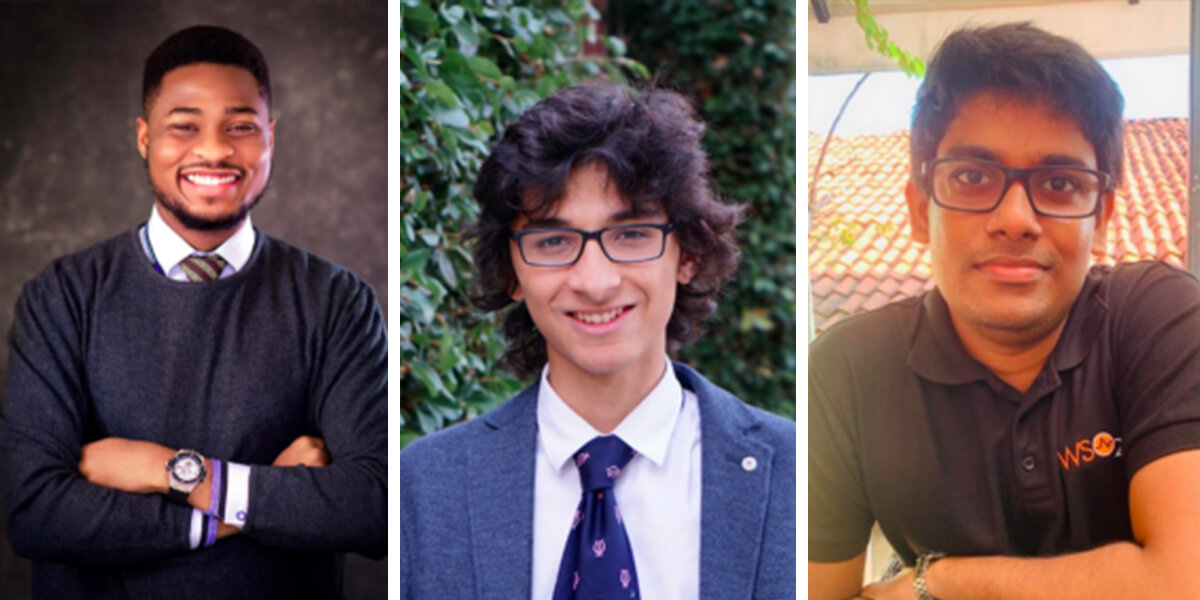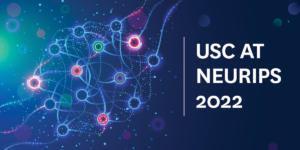
(Left to right) Augustus Agbator, Sparsh Sharma and Thiloshon Nagarajah
Thiloshon Nagarajah, a computer science master’s student at the USC Viterbi School of Engineering; Sparsh Sharma, a junior economics student at the USC Dornsife College of Letters, Arts and Sciences; and Augustus Agbator, a Loyola Marymount University student, teamed up to win the $20,000 grand prize in the Call for Code Education Innovation Case Competition hosted by IBM.
They won for their e-learning mobile app, Simulated Interactive Teaching (SIT), which allows students from around the world to access remote learning without requiring fast or reliable internet.
“We were pretty ecstatic when we heard the news,” Sharma said. “We were in a bit of shock.”
As the contest victors, they will receive an invitation to the Clinton Global Initiative University 2022 virtual event hosted by former President Bill Clinton and his daughter, Chelsea Clinton. At the CGI they will receive mentoring, guidance, and support to further develop their app.
Nagarajah paired up with Sparsh and Augustus because they all coincidently lived in the same apartment building. Originally from Sri Lanka, Nagarajah was inspired to create an application that could help individuals from developing countries keep connected, despite their unreliable internet service.
Soon after the trio was formed, team members went to work. Sparsh oversaw the communications and public relations. Augustus worked with the user experience and interface, leaving Nagarajah to focus on building the application and designing the icon.
The three students crafted the mobile app over the course of three months through trial and error. “At first, we had this grand idea, but none of us were sure we could really develop something like that,” said Nagarajah.
Their mobile app leverages AI to generate artificial video lectures on students’ mobile devices, so they doesn’t have to be downloaded over the internet. “These video lectures look and sound exactly as their teachers so students won’t feel they’re artificial,” Nagarajah said.
“The entire purpose of this project was to enable people in rural areas to give access to education, so they don’t have to have super-fast or reliable internet,” he added.
Team members have agreed to put the prize money toward improving the app’s performance.
Published on April 6th, 2022
Last updated on April 6th, 2022












